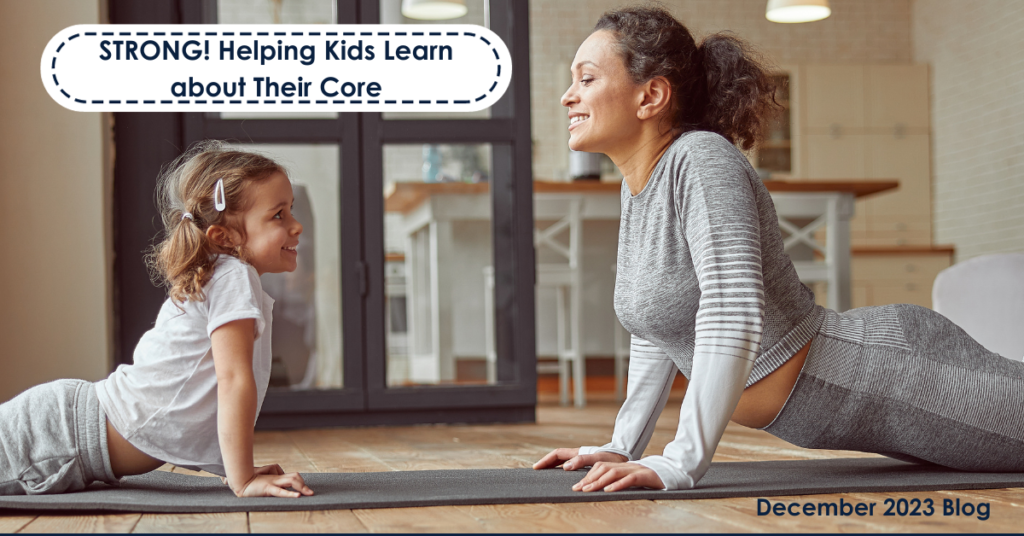
As people get older, they begin to recognize the importance of a strong core. It helps people prevent back pain, have increased flexibility, and better posture. The younger we are when we start working on having a strong core, the more benefits someone has from that work. Even kids can work on having a solid core. When they’re babies, they begin to build it as they learn to sit up, to move around, and to move. As they age, they will grow their strength through play, growth, and intentional development in gym class.
At Stretch-N-Grow, we love to help kids learn about their bodies and health through fun! We do this through games and activities, as well as by helping them learn the names of their muscles. When a kid is empowered with tools and knowledge, studies show that children have higher self-esteem, and develop healthy habits over time.
Here are 3 ways to help kids learn about, and build, their core.
- The major muscles in the core are: the abdominus in the front, the erector spinae in the back, and the obliques on the side. To feel your ab muscles, slowly bend forward at the waist, and then slowly do the opposite and bend backwards to feel the back muscles. Bending side to side will help them feel their obliques. As they get familiar with the names and what movements activate those muscles, they can use them better, and learn as they get older when they’re overworking them.
- STREEEEEETCHING is an important way to build a strong core; we even have it in our name! Certain stretches focus on that middle part of the body. Some key stretches for this part of the body include:
- Lay on the tummy and put hands by chest. Lift the head and chest 4-5 inches off the ground. This stretch can be called the sea lion, the lizard, or the cobra.
- If your kid loves superheroes, they’ll love lying on their tummy stretching out their arms and legs and lifting their heads to fly like Superman. They’ll also be stretching their back.
- Lie on the back and curl all your limbs in and then slowly stretch them out, just like a starfish. Enjoy an under the sea adventure while stretching the core.
- Age-appropriate exercise is key to making those muscles stronger. From push-ups to crab walking, to circling arms forwards and backwards, growing bodies are very responsive. The key is to make sure the activities are age-appropriate. The older the child, the more strenuous activities can be. Weights should not be brought into a child’s routine until the age of 7 or 8.
BONUS!To prevent poor posture due to screen exposure, stand against the wall so hips and shoulder blades touch the wall. Put arms up in a goal position, and move them up and down slowly to keep the spine in alignment.
There are so many opportunities for a kid to engage their core outside of the 30 minutes of gym they may get in school. Even better? Teachers and parents can make it a part of their routine as well to improve their core too! Make it a group activity, and make a stronger core part of your new year.
By: Bethany Verrett
